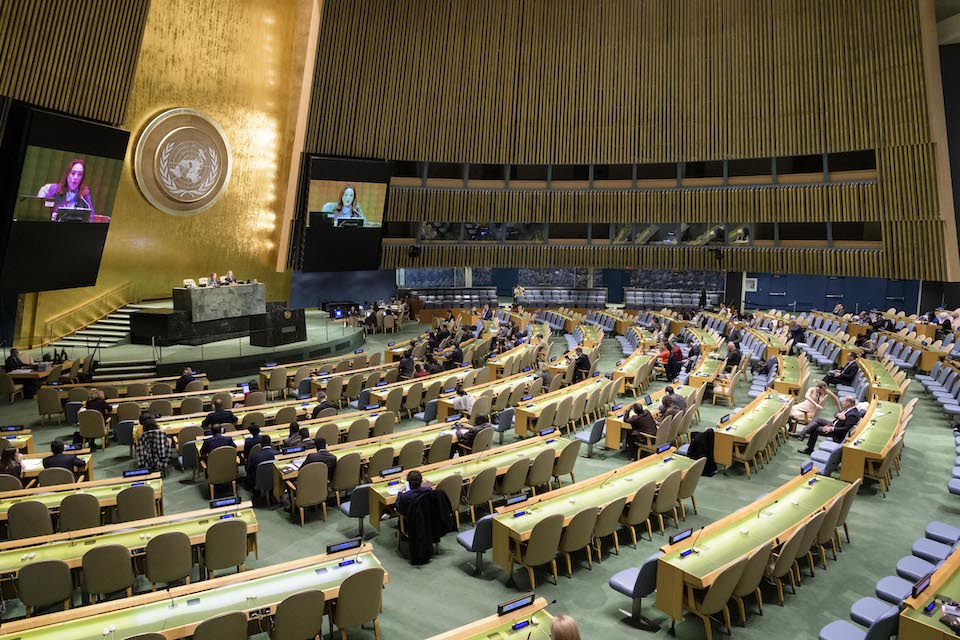Protecting Human Rights
UK National Statement on the Promotion and Protection of Human Rights by Ambassador Karen Pierce at the UN General Assembly Third Committee

Thank you very much indeed Mr Chairman. Having been the British Ambassador to the Human Rights Council, I’m particularly delighted to be able to join you today.
As we celebrate the 70th anniversary of the Universal Declaration of Human Rights, the United Kingdom remains committed to the promotion and protection of the human rights of all people around the world. But while we may all be born equal in rights and dignity, sadly there are wide differences in our enjoyment of them. This is something that should concern all members of the United Nations. It is incumbent on us here to advocate for those whose rights are the most vulnerable or the least respected, and indeed all too often violated by the very governments that have the biggest obligation to protect them.
For the journalists who are detained, tortured, or killed simply for trying to find out the truth, or speaking truth speak to power.
For the people who are discriminated against, put on trial, detained, or killed for exercising their freedom of religion or belief, whether they be Jehovah’s witnesses, Christians, Muslims, Baha’i, Jewish, Buddhists or atheists. For those who are prosecuted for blasphemy or apostasy - or put into so-called re-education camps without trial or due process.
For the modern day slaves, including children, who toil in servitude in sweatshop factories; as domestic servants with their passports confiscated, in brothels, in fields or mines, or on construction sites in unsafe conditions; or as labourers sent abroad as commodities to generate funds for a repressive regime.
For the people who are denied the right to marry the person they love, or the ability to form a family; who are discriminated against, attacked or killed; or denied services simply for their sexual orientation or gender identity. For those in non-conventional families, who find themselves under attack, even when they provide a loving home where children can thrive.
For the people who have had to flee to neighbouring countries to escape sexual violence, slaughter and ethnic cleansing, while the international community endeavours to hold the perpetrators to account.
For the people poisoned in foreign countries as political acts or because they have chosen to live in freedom, or criticised the repressive regime they left.
For people who are sentenced to death in mass trials, where due process is flawed, or put to death for committing minor crimes.
For the human rights defenders and their families, who are mistreated, arrested, ‘disappeared’ or killed for standing up for the rights of others. For people denied the right to vote, protestors and activists jailed for demanding democracy.
For girls discriminated against from birth; denied the same education as boys; denied control over their assets, income or bodies; married off too young or against their will; denied the right to choose when to have children, suffering increased maternal and infant mortality and complications.
Not only because our shared humanity dictates we should care about the human rights of all – although it does. But also because nations that respect human rights and the rule of law are the very societies that provide the best conditions for development, economic growth, peace, and stability and the happiness of their people. If we want to leave no one behind, we need to make sure we are all free to progress.
Thank you Mr Chairman.
Updates to this page
Published 29 October 2018Last updated 29 October 2018 + show all updates
-
Location tagging changed.
-
First published.